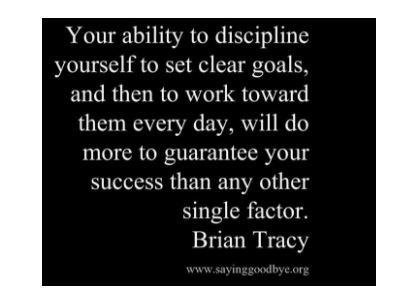Successful Entrepreneur Traits
A study of successful entrepreneur traits has revealed that there are certain specific qualities which distinguish them from others. Understanding these traits will be useful for anyone planning a startup.
The entrepreneurs are able to spot opportunities and apply resources to offer a product or service. The success of the venture depends largely on these specific traits of the entrepreneur regardless of the startup offering a unique solution to a problem or the size of the market opportunity.


Successful Entrepreneur Traits - Findings of Two Major Research Studies
1.Achievement Motivation
Achievement motivation can be defined as the need for success or the attainment of excellence. Individuals will satisfy their needs through different means, and are driven to succeed for varying reasons, both internal and external.
It is an inner spirit that activates an entrepreneur to strive for success. In simple terms, need for achievement is the desire to do well. The empirical evidences support the hypotheses that need for achievement contributes to entrepreneurial success.
David C. McClelland, a well-known behavioral scientist of USA holds the view that achievement motivation can be developed through training and experience. He proved this by conducting an experiment which is popularly known as Kakinada Experiment in which formal training has improved the need for achievement.
2. Effectuation Theory
Effectuation is a principle introduced by Saras Sarasvathy in 2001.
Prof. Saras Sarasvathy developed the Effectuation theory of entrepreneurship after exhaustively interviewing 27 serial entrepreneurs. Her research findings answered the age-old-question – What do entrepreneurs actually do? (thus defining the process of entrepreneurship, which everyone seems to firmly believe is different from management).
Effectuation is generally defined as a form of reasoning or problem solving which assumes the future is largely unpredictable, but that it can be controlled through human action. This is in stark contrast to another form of reasoning, Causality, which assumes the future is theoretically predictable based on prior events.
Effectuation includes a set of decision making principles, expert entrepreneurs are observed to employ in situations of uncertainty.
The casual thinkers start with an End in mind and try to find the best Means to achieve it – They follow the adage” If I can predict the future, I can control it.” She observed that most managers are Causal thinkers, but not entrepreneurs (for the most part).
According to her, entrepreneurs are indeed Effectual Thinkers who start with a given set of Means and find new and different Ends, which are not necessarily pre-determined. Entrepreneurs in her studies follow the adage “If I can control the future, I do not need to predict it”.
She concluded from her research that ‘Entrepreneurs make it up as they go along – and that this process can be learned!’
Successful Entrepreneur Traits - Observations
Entrepreneurship is a long haul and not a 100-meter dash. The journey has many unknown factors. The grit and determination to achieve success by keeping a positive mind set is critical.
1. Focus
The single minded focus on launching the product, mobilizing the resources etc. are needed to achieve the objectives. For example, an entrepreneur made more than 200 presentations to a venture capitalist before funds could be obtained.
2. Tenacity
The successful entrepreneurs never give up and are able to innovate to find solutions to keep the business going. Patience is a virtue they have in plenty.
The successful entrepreneurs refuse to call it quits. Every start-up will hit the occasional bump in the road -- times when things do not go as planned, or outright fail. These are the times when the most brilliant business people separate themselves from the rest of the pack.
Failure+Persistence=Succsess
Success cannot be achieved in six months’ time. The story of Col. Sanders of KFC where he pursued his goal for more than two decades and could establish the business only at the age of 62, is a good example.
3. Art of saying ‘NO’
This is one entrepreneurial trait difficult to cultivate as the ‘Guilty feeling syndrome’ is inbuilt in us. Ability to walk away, close a business or asking non performing employees to leave or not yielding to unreasonable demand of a customer have to be faced in any entrepreneurial journey.
Successful Entrepreneur Traits
Nine Characteristics of Successful Entrepreneurs
Decisiveness
As an entrepreneur, you won’t have room for procrastination or indecision. Not only will these traits stall progress, but they can also cause you to miss crucial opportunities that could move you toward success. Can you make decisions quickly and seize the moment?
Successful Entrepreneur Traits


Image Source;Imagerymajestic
Successful Entrepreneur Traits
10 Qualities of a Successful Entrepreneur
Successful business people have many traits in common with one another. They are confident and optimistic. They are disciplined self starters. They are open to any new ideas which cross their path .
Successful entrepreneurs want to see what the view is like at the top of the business mountain. Once they see it, they want to go further. They know how to talk to their employees, and their businesses soar as a result.
http://under30ceo.com/10-qualities-of-a-successful-entrepreneur/
Top 5 Qualities of a Successful Entrepreneur- Lucy Brian
Business is an art, and not everyone knows to master this art. Some people have the inborn qualities to be a successful entrepreneur, and others work to develop these qualities.
No matter which of these descriptions best fits you, everyone can benefit from continuing to improve on these important characteristics.
Risk-taking ability
Entrepreneurship is all about taking risks. Entrepreneurs have the ability to take greater risks to achieve greater success, but not all risk-takers are successful entrepreneurs.
A successful entrepreneur knows when to take risks and which risks will be beneficial or harmful to the company or himself.
All entrepreneurs plan before taking risks and make a plan B (in case of any loss of mishap) and establish a suitable ground for the results of the risks.

Successful Entrepreneur Traits- Conclusion
The two research findings by David C. McClelland and Prof. Saras Sarasvathy clearly demonstrate that entrepreneurs behave differently. These attributes help them spot opportunities where, sometimes, none exists. They doggedly pursue their ambition in spite of several hardships and obstacles.
Patience, tenacity and keeping a positive mindset under the most testing times are the traits that are seen in successful entrepreneurs.
Being smart and hardworking can only take you so far.
"You have to have that vision, that crystal ball mentality to project into the future. You also need resilience, and no fear, because for every 'yes,' you're going to get a hundred 'nos.' "- Avi Savar, Managing Partner and CEO of business accelerator Dreamit.

